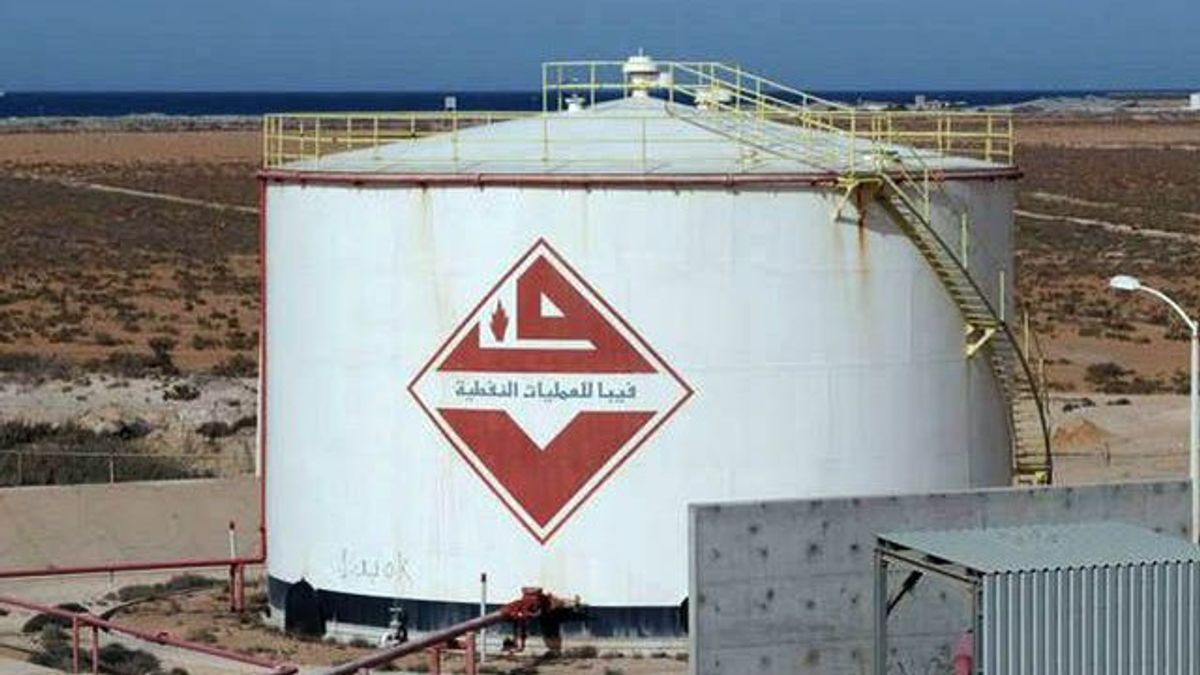JAKARTA - Oil prices reversed direction to settle in positive territory in late trading Monday (Tuesday morning WIB) May 2, amid a rally in the diesel oil market and concerns that supply may be limited by a potential EU ban on Russian crude.
Brent crude futures for July settlement rose 44 cents, or 0.4 percent, to settle at 107.58 dollars a barrel on the London ICE Futures Exchange. West Texas Intermediate (WTI) crude futures for June delivery added 48 cents, or 0.5 percent, to close at 105.17 dollars a barrel on the New York Mercantile Exchange.
Diesel futures continued to gain after switching to the June contract on Monday May 2, surging 5.0 percent to $4.0172 a gallon, as low supplies globally put pressure on WTI and Brent prices.
"The key item is further strength in the diesel market which acts to pull crude higher," said Jim Ritterbusch, president of Ritterbusch and Associates in Galena, Illinois.
Both benchmarks fell more than $2.00 earlier in the session on news that the European Commission could spare Hungary and Slovakia from an embargo on Russian oil as it prepares to settle further sanctions against Russia on Tuesday.
Oil prices "have seen days of gains and losses alternating almost clockwork," as "influential factors cancel each other out," Carsten Fritsch, energy analyst at Commerzbank Research, said in a note Monday May 2.
Concerns over supply risks continue to play a role, as the European Union appears to be moving toward an oil embargo on Russia, he said.
The European Union is likely to ban Russian oil imports by the end of the year, two EU diplomats said, after talks between the European Commission and EU member states over the weekend.
"Hungary will not choose any action prepared by the European Union that could jeopardize the security of its oil or gas supplies," Foreign Minister Peter Szijjarto said, reaffirming the country's position on Monday 2 May to RTL television.
About half of the 4.7 million barrels per day (bpd) of Russia's crude exports goes to the European Union. This amount supplies about a quarter of the block's oil imports in 2020.
On the demand side, US factory activity grew at its slowest pace in almost two years in April, according to a survey from the Institute for Supply Management (ISM) on Monday, May 2. The ISM national factory activity index fell to 55.4 last month, which is still considered a sign of expansion.
"US economic data still indicates expansion in the manufacturing sector, far from the recession figures," said Phil Flynn, market analyst at Price Futures Group in Chicago.
Markets in Japan, the UK, India and across Southeast Asia were closed for a public holiday on Monday 2 May.
China released data on Saturday April 30 showing that factory activity in the world's second-largest economy contracted for the second straight month to its lowest level since February 2020 due to lockdowns related to the COVID-19 pandemic.
"A slowdown to that extent, at a time when China is already suffering from a property crash and concerns about its regulation are (until recently) increasing, have the potential to be a major problem for commodity markets and the world economy," Tobin Gorey, commodity analyst at Commonwealth Bank, said in a note. quoted by Antara.
The English, Chinese, Japanese, Arabic, and French versions are automatically generated by the AI. So there may still be inaccuracies in translating, please always see Indonesian as our main language. (system supported by DigitalSiber.id)













